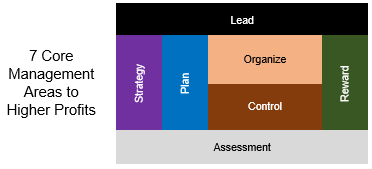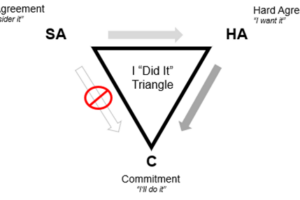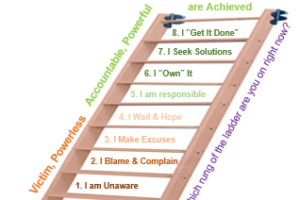
Synopsis
Neglected or unskilled handling of any of the seven universal business management areas reduces individual and organizational effectiveness. Often, this happens because the work of management is not being done adequately. As a result, a mismanaged business will lose control over cash and be inefficient in its resources, resulting in profit losses.
Neglected or unskilled handling of any of the seven universal business management competencies reduces individual and organizational effectiveness, leading to lower sales and profits.
Managing a business is a never-ending job and a continually evolving process. It requires the constant application of seven foundational management areas of competency. As a result, the work of a business owner is never “finally” completed. This is why continuous follow-through is critical to your personal and business success.
Anytime a business resource is wasted, profits are lost, and cash is wasted. What further complicates wasted resources is how high the odds are that your employees are increasingly frustrated because they see this waste happening. You correct this by developing management competency in the following seven universal areas of effective business management.
The consistent application of each of the seven management practices involving assessment, strategy, planning, organizing, leading, controlling, and rewarding the actions that produce the results in your business is how you generate predictable cash flow from higher profits.
- Determine where you are: This is your starting point = Assessment
Begin by reexamining the assumptions by which you operate. Take into account the major problems that exist and that require resolution. This phase also includes looking into any new opportunities that emerge.
- Establish goals and objectives. These define what your desired destination looks like = Strategy
Next, define the desired outcome that sets your direction or the pathway you will follow to reach it. Prepare for the future by setting goals that represent what needs to be done to realize your strategy. Your stated objectives will tell all those involved how you will collectively determine when you have realized your goal.
- Make a plan to attain your goals and objectives. This plan directs the course you’ll follow to reach your desired destination = Plan
Your plan is the roadmap you’ll follow to achieve your goals. For each objective, there are five items to be addressed:
-
-
- What actions need to be completed to achieve the objective?
- Who will be accountable for its completion?
- Who will be involved in doing the work?
- What will be the cost?
- When will it be completed?
-
- Allocate and organize your resources. This is how you position the business to succeed = Organize
Align the people involved so that their time and effort, supported by money and fixed assets, are well-positioned to execute the plan.
- Make it ALL happen through leadership. You must direct these organized resources to achieve the goal = Lead
Leadership involves the ability to diagnose a situation, understand what is needed, translate what needs to be done into a realistic vision and goal, and communicate everything so that people can understand and accept. Ideally, effective leadership also inspires others to perform the actions that the plan has identified and to which you have committed.
- Make sure it’s happening as planned and measure the results of your efforts concerning your goals = Control
Your plan charted your route, your organization mobilized your resources to allow you to proceed down the route, and your leadership moved you forward. Now it’s about measuring your progress towards your desired destination (or goal). Accurate measurement is the only way to know whether you are progressing forward and the only way to determine when you have reached your desired destination (achieved your goal). Without this step, you will never know if you are on track, behind, off-course, or even ahead of your plan.
- Recognize, express appreciation, and reward those responsible for contributing the most toward your progress = Reward
There will always be obstacles and constraints that hinder your success. Benefiting from others who can help identify and find solutions to these obstacles and constraints is the KEY to achieving your stated goals. As you progress toward and ultimately achieve your goals, a strong leader will recognize, thank, and even reward all who contributed to its accomplishment.
Neglected or unskilled handling of any of the above seven areas of effective business management reduces both individual and organizational effectiveness. Often, this happens because the work of management is not being done adequately. As a result, a mismanaged business will lose control over cash and be inefficient in its resources, resulting in profit losses.
Do you have the core management skills needed to make more money?
If you want confirmation on how well you manage your business, click here to take the “free” BusinessCPR™ Business Assessment to confirm how well your business is being managed across ten money-making dimensions.
Upon completing this no-obligation assessment, you will receive a free business risk profile across ten money-making dimensions showing how at risk your business is to suffering cash flow and profit problems, the primary cause of business cardiac arrest over the next three years.
How good are you?
If you want confirmation on how well you manage your business, click the link below to take the “free” BusinessCPR™ Business Assessment to confirm how well your business is being managed across ten money-making dimensions. Upon completing this no-obligation assessment, you will receive a free business risk profile across ten money-making dimensions showing how at risk your business is to suffering cash flow and profit problems, the primary cause of business cardiac arrest over the next three years.
TAKE THE TEST
